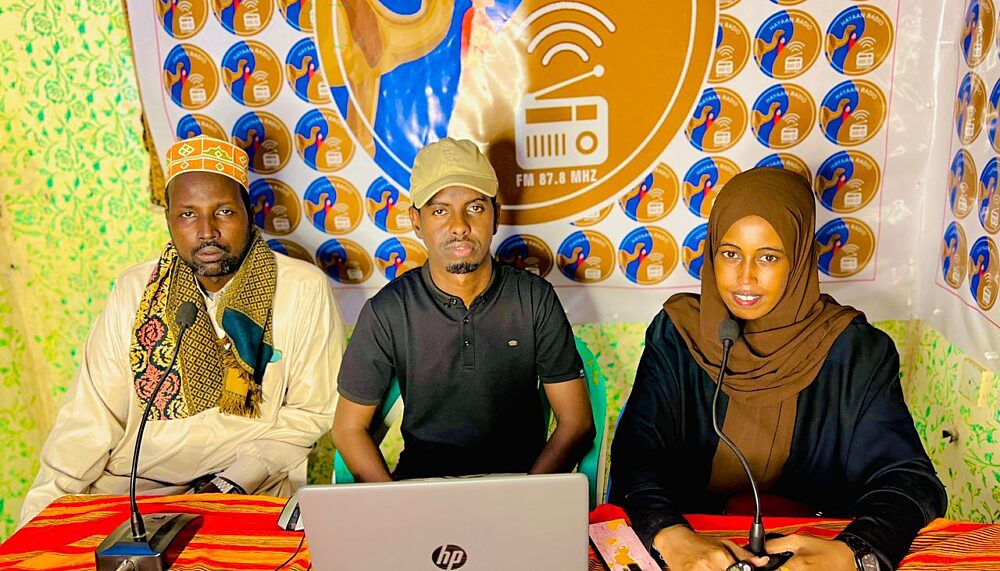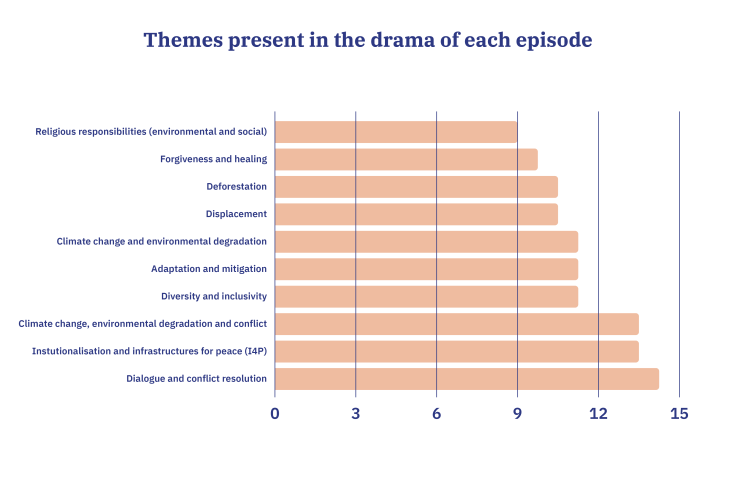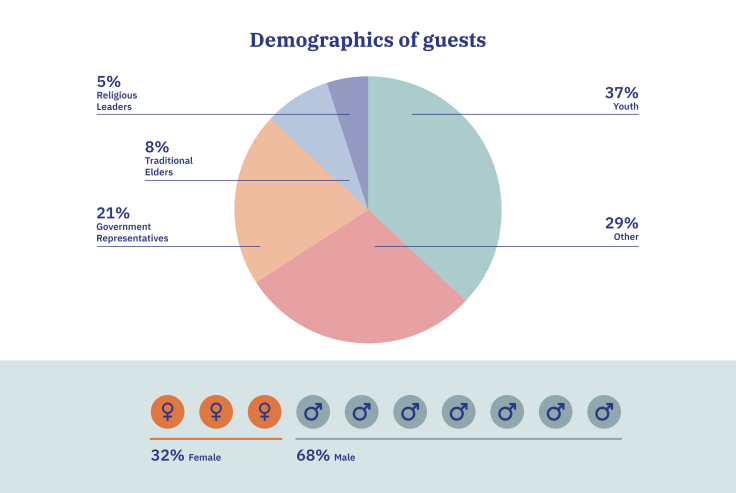STORY
Using the power of radio for environmental peacebuilding
Our radio programme in Somalia fosters community dialogue around climate change and conflict.

Somalia has been experiencing an increase in extreme weather events, such as droughts and floods, both in frequency and intensity over the past decade. As Somali society and economy largely depend on pastoralism and agriculture, the changing weather has had massive negative consequences for the livelihoods of the people. As an alternative income source, many Somalis have entered the charcoal trade, further exacerbating environmental degradation. Moreover, the changing weather patterns have led to a notable decrease in the availability of natural resources, such as potable water. This in turn has significantly escalated competition among Somalis for these scarce resources, thus increasing the likelihood of violence.
In 2021, we began streaming the radio programme “Garasho-wadaag”, which translates to “sharing of knowledge”, in the central Somali state of Galmudug to address the issues rising from the complex interaction of climate change, environment degradation and conflict.
Radio shows are very popular in rural and remote areas of Somalia. So, our team decided to utilise this medium to increase awareness and bring local peacebuilders together with experts and community members to discuss how environmental degradation exacerbates conflict, and what adaptation measures or coping mechanisms could look like.
Please click on the box of the bottom right corner of the video to enable subtitles.
This programme has done a lot in raising public awareness. Many people who used to fight over grazing lands and over water wells now let their animals graze and drink water together. They formed peacebuilding committees.
Abdifatah Abdullahi Hussein, radio programme listener

The episodes address topics ranging from climate, dialogue and religious responsibilities. Graphic © Odile Stabon, adelphi
Each episode begins with a short drama sketch followed by a live discussion with guests, typically community peacebuilders and representatives from local authorities. The drama titled “Geedi and Gobaad” is about two protagonists, a young man and his grandmother, who engage with their communities to address current issues and raise awareness about the conflict-climate nexus.
Moderated by Burhan Abdullahi, a prominent young journalist from Galkayo who also plays the character of Geedi in the drama, the subsequent discussions explore topics such as the merits of inclusive and collaborative peacebuilding, the religious and traditional responsibilities to protect the environment, clan conflicts and revenge killings, climate change-induced conflicts, deforestation and other forms of environmental degradation, and the myriad of sociopolitical and economic implication.
When you listen to the drama story of "Geedi and Gobaad", you will realise that conflicts could be best resolved through dialogue. I can confidently say that Garasho-wadaag is a very important programme for the community.
Maymun Ali Nur, Chairperson of Women’s Association in Galkayo, radio programme listener

The guests chosen reflect the diversity of the actors involved in peacebuilding in Galmudug. Graphic © Odile Stabon, adelphi
The radio programme is aired live from a station in Galkayo and broadcasted on three further stations in Galmudug. To reach a broader audience inside and outside of Somalia, the programme is streamed live on facebook and the audio is later made available as a podcast. On Facebook alone, the programme has already reached 75,000 people.
Our efforts are limited in the sense that we can only gather four to five people to discuss issues, whereas the programme uses mass media to convey the message.
Nabadon Abdulqadir Ali Hashi, radio programme listener
Due to the popularity of the programme and extensive positive feedback from guests, listeners, and followers on social media, the radio programme has been extended from airing once a month to twice a month in Galmudug. Inspired by its success, we started a second radio programme in Hirshabelle State and we are planning to further expand the radio programmes in order to reach as many Somalis as possible who are interested in environmental peacebuilding.
The radio programme is part of our work within the Weathering Risk consortium led by adelphi.
Read more on adelphi's website.
Your support helps us do more
So much money is spent on war. It’s time to invest in peace. Your donation enables us to sustain and expand our work.


